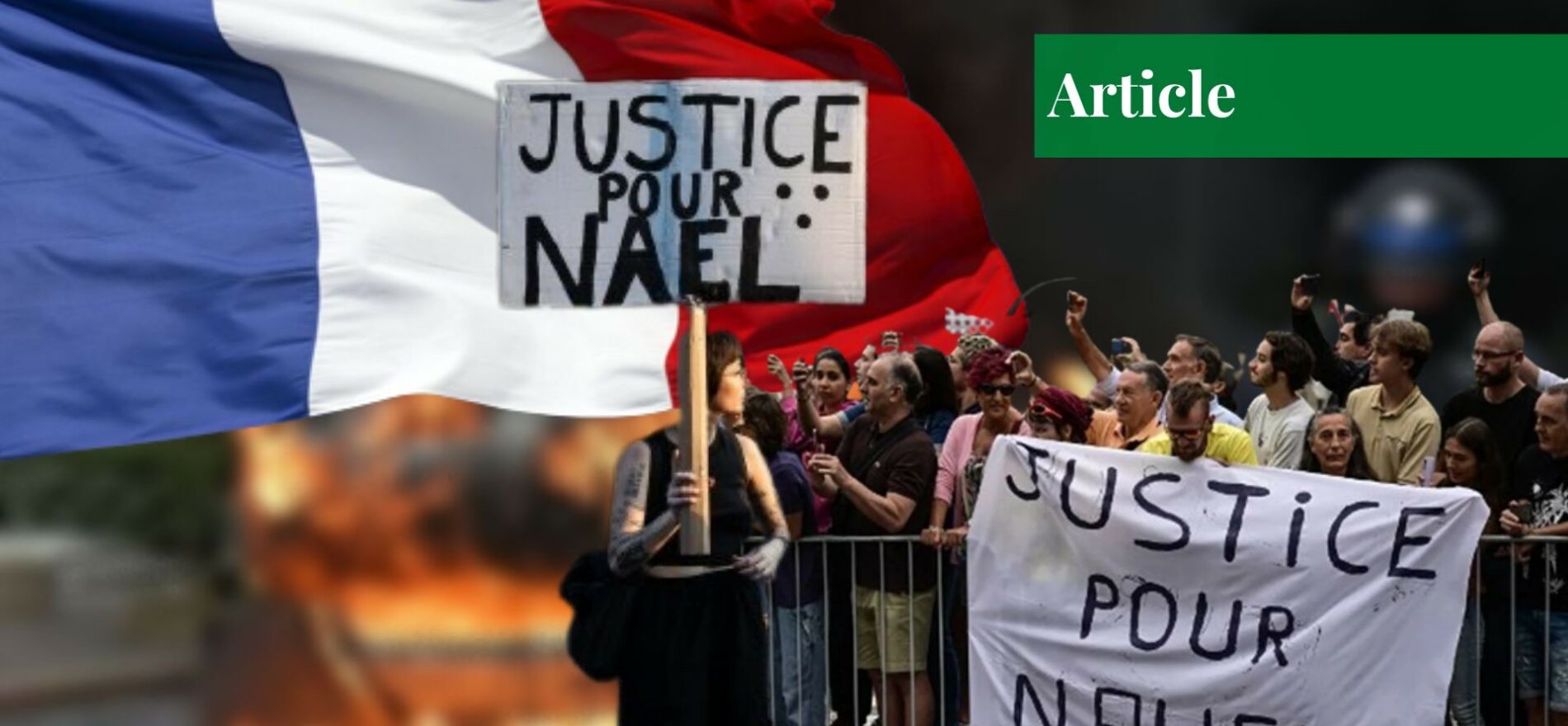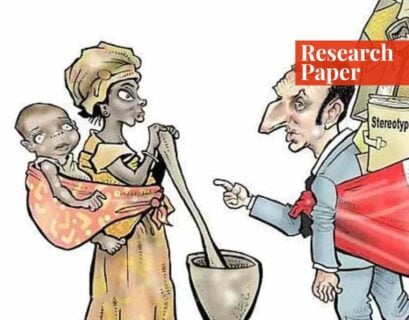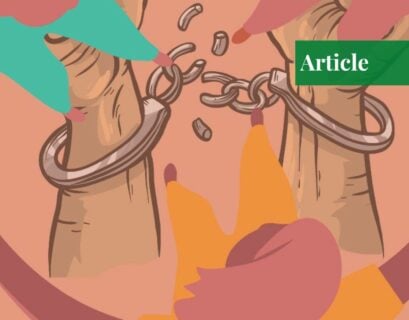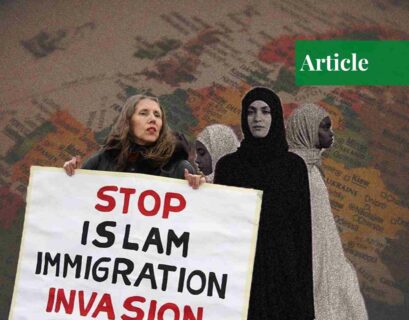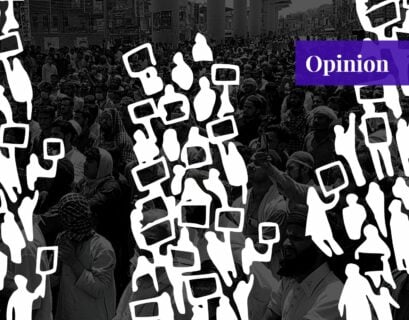Ms Fizza Batool is a student of International Relations from Kinnaird College for Women. She is particularly interested in geo-economics, geopolitics, area studies, diplomacy, conflict and peace, strategic and defense studies, political economy, and global politics of the environment.
The Revolutionary French Heritage
Protests have a deep and vibrant history in France, going back to the 13th century. The French people have used protests to air their concerns, call for changes, overthrow the government, or stand up for their liberties and rights. Violence has frequently been used during protests, such as riots, conflicts, strikes, or insurrections in France. Additionally, political, religious, social, or economic considerations have motivated protests.
Some of the most significant demonstrations in French history include the Jacquerie (1358), the Maillotins (1378–1382), the Mad War (1485–1488), a noble uprising against Anne of Brittany, the Praguerie (1440), a noble insurrection against royal power, and the League of the Public Weal (1465), a noble collaboration against Louis XI.
More of these include the Protestant nobles’ unsuccessful effort to overthrow the monarch known as the Amboise Conspiracy (1560), the St. Bartholomew’s Day Massacre (1572), a Catholic massacre of Protestants, and the Fronde (1648–1653), an armed conflict among nobility and monarchy.
Not to forget the revolutions, the French Revolution (1789–1799), a violent oust of the monarchy and creation of a republic, the July Revolution (1830), a popular revolt that displaced Charles X with Louis–Philippe, the French Wars of Religion (1562–1598), a string of disputes between the Paris Commune (1871), a socialist attempt that was put down by the government, the June Days Uprising (1848), a workers’ rebellion against the Second Republic, and the Dreyfus Affair (1894–1906), an episode in politics that split France over the incorrect conviction of a Jewish soldier.
The left-wing coalition, the Popular Front, implemented social changes in 1936 but those were opposed by the right. Moreover, the Resistance was a secret organization that opposed Nazi occupation and cooperation between 1940 and 1944. Additionally, the May 1968 events were a student-led uprising that called for the establishment to change. Later, a large-scale student movement challenged a new law on university reform during the 1986–1987 protests.
Throughout 1995, there were widespread strikes in opposition to pension and welfare reforms. The suburban riots of 2005 revealed socioeconomic and racial injustices through a series of violent disruptions in France. The Yellow Vests Movement, a grassroots protest over rising gasoline prices and living expenses, ran from 2018 to 2019. Pension reforms in France were again a reason for the protests that struck the country in 2023.
Current Wave of Protests
The police shooting of a 17-year-old teen, who was of Algerian descent, in Nanterre on June 29, 2023, has served as the impetus for the present unrest in France. The officer claimed he shot the youngster because he was concerned the boy might run someone over with the automobile, but the video of the incident clearly showed no danger. The police officer has been detained in a preliminary capacity and is the subject of a criminal investigation for voluntary homicide.
The event provoked riots in Nanterre and neighboring places, as demonstrators sought justice for the victim while torching vehicles and structures and hurling rocks and fireworks at police in France.
The acts of the police were denounced as “inexplicable and unforgivable” by President Emmanuel Macron, who also called an urgent security conference to reestablish order. However, the turmoil has also brought to light more serious concerns like racial prejudice, economic hardship, and police brutality that affect many French suburbs. As a result, the demonstration fits into France’s long history of civil disturbance, which has often reflected societal tensions and disputes.
To stop additional unrest, some towns, like Marseille and Lille, have banned public demonstrations or set curfews for unaccompanied youngsters. Including special forces, the police have deployed 45,000 personnel around the nation and have already made hundreds of arrests.
Response by the Government and the Citizens
The protesters contend that the boy’s human rights were violated and that the police used inappropriate force. Furthermore, given that the youngster belonged to a minority ethnic group, they charge the police with bigotry and prejudice. The administration has denounced the assassination and pledged to investigate the matter thoroughly.
President Macron has sent his sympathies to the boy’s family and urged restraint and communication. Additionally, Macron has promised to address socioeconomic inequalities and marginalization that many young people in France experience as well as an overhaul of the police system.
Discrimination and Fragile Politics in France
The event has brought to light the long-standing tensions in France between the police and underprivileged groups, particularly those with immigrant backgrounds. Many young people in these areas contend that the police, whom they see as harsh and abusive, are harassing and discriminating against them. On the other hand, the police assert that they encounter hostility and danger from radicals and criminals in certain districts. Conflicts and riots are widespread due to the lack of communication and trust between the two parties in France.
The nation’s ethnic and religious diversity has been formed through colonization, immigration, and integration over a lengthy period. However, because of terrorism, secularism, and economic and social inequality, this variety has also served as a source of friction and conflict. People of color and members of ethnic minorities in France experience racial discrimination in many facets of their lives, including work, housing, health, and justice. They experience violence, harassment, and prejudice from both people and institutions.
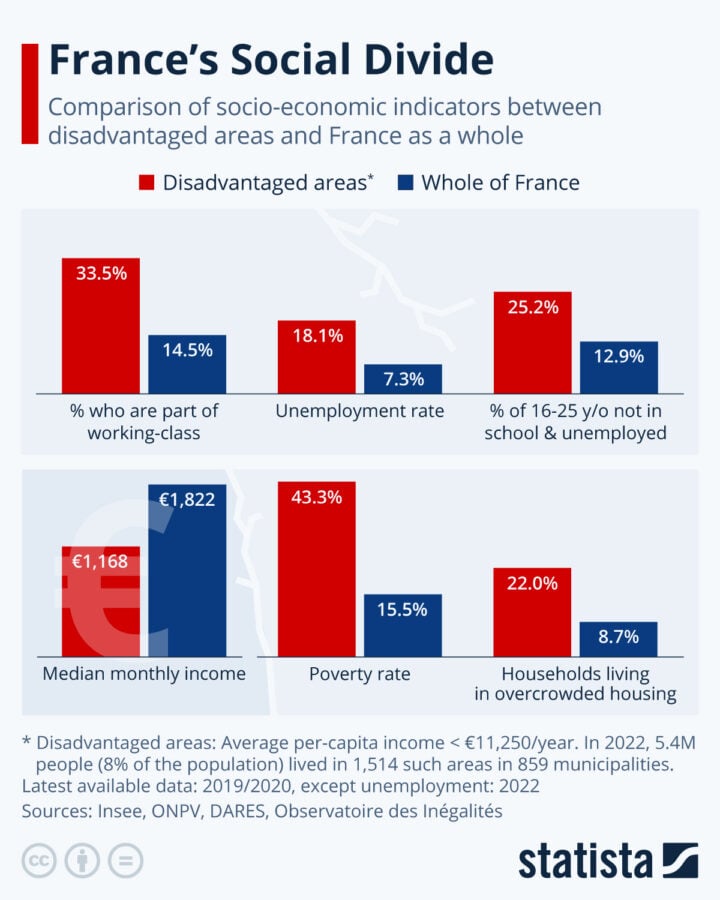
The term “fragile politics” describes the divisiveness and instability of the French political system, which has been characterized by the rise of populism, nationalism, and extremism. While the radical movements have taken advantage of the impoverished groups’ resentment and fury, the mainstream parties have failed to address their complaints and demands.
The protests in France are an outward sign of the cynicism and mistrust that many people harbor against the ruling class and the government. Additionally, they allow people to express their identity and sense of community. The demonstrations have been active and diversified, encompassing a range of participants, concerns, and strategies. The major reasons behind the demonstrations are social justice, climate change, democracy, and police brutality.
Several activists and human rights organizations have questioned the government’s dedication to accountability and change, pointing out that instances of police brutality of a similar nature in the past have seldom resulted in convictions or punishments for the officers involved. They have also challenged the government’s stances on social justice, immigration, and security, alleging that these policies have led to the marginalization and exclusion of several French citizens.
Racial Segregation in France
The current violence has been connected to the complicated and divisive topic of racial segregation in France. Nahel’s ethnic background is important to comprehend the circumstances and ramifications of his murder since it highlights the long-standing conflicts and discrimination that many French citizens of North African descent experience.
The event provoked demonstrations and riots all around France, revealing the pervasive social and economic injustices that particularly impact people of African and Arab origin. Separating individuals based on their race or ethnicity, whether via legislation or practice, is known as racial segregation. Racial segregation is not a state-sanctioned practice in France, but it is pervasive in many areas of society, including housing, school, work, justice, and health.
A 2018 study by the French National Institute of Statistics and Economic Studies (INSEE) found that immigrants were more likely to experience discrimination in the workplace, live in underserved and crowded neighborhoods, attend lower-quality schools, suffer from chronic illnesses, and be overrepresented in prisons. Additionally, they have encouraged a feeling of exclusion and anger among various populations, particularly the youth who believe they are not part of or possess an opportunity in their nation. Racial segregation has several negative effects throughout France.
Relevance to the George Floyd Incident in 2020
A distressed incident termed the George Floyd matter led to a widespread push for racial justice and police accountability. George Floyd, a 46-year-old Black man from Minneapolis, was detained by four police officers on May 25, 2020, for allegedly using counterfeit $20 cash at a convenience shop. Derek Chauvin, one of the police officers, ignored Floyd’s persistent cries for help and knelt on his neck for more than nine minutes.
At a hospital, Floyd was declared deceased after losing consciousness. Bystanders who witnessed the event recorded it on film, which was widely shared on social media and led to significant demonstrations and civil disturbance both in the United States and abroad.
Recent demonstrations against racism and police violence in France have been compared to the George Floyd event in the United States, which gave rise to a worldwide movement for racial justice and accountability.
The fact that both events featured the killing of a black man at the hands of white police officers who used excessive and disproportionate force against them is one of the most striking similarities between them. Both assaults were documented on video and extensively shared on social media, generating indignation from the public and calls for justice. Both episodes brought to light the pervasive issues of systematic racism, discrimination, and violence that minority populations face not just in France and the US but also in other nations.
When comparing the two scenarios, there are significant distinctions that must also be considered. First, there are many differences between the historical contexts of racial relations in France and the US. Republican universalism, which prioritizes equality and citizenship over ethnic or religious identification, has a long history in France. On the other hand, the US’s racial identity and politics have been formed by its history of slavery, segregation, and civil rights fights.
Second, there are significant differences between black people’s social and economic circumstances in France and the US. While both groups encounter marginalization and prejudice, black Americans are more prone than black French people to experience poverty, unemployment, imprisonment, and health inequalities.
Conclusion
In conclusion, the horrific police attack on a teen in France is a blatant violation of human rights and an illustration of the country’s pervasive bigotry. Four police officers assaulted and strangled the youngster, who was of Algerian heritage because he was resisting arrest. Like the George Floyd case in the US, when a black man was killed by a white police officer who knelt on his neck for more than nine minutes, the act provoked indignation and protests across France.
Both incidents highlight the critical need for police accountability and reform as well as the acknowledgment and respect for the individuality and variety of every person. France, a country that takes pride in upholding the ideals of liberty, equality, and fraternity, cannot afford to ignore or tolerate such violent and unfair crimes against its inhabitants.
If you want to submit your articles, research papers, and book reviews, please check the Submissions page.
The views and opinions expressed in this article/paper are the author’s own and do not necessarily reflect the editorial position of Paradigm Shift.
